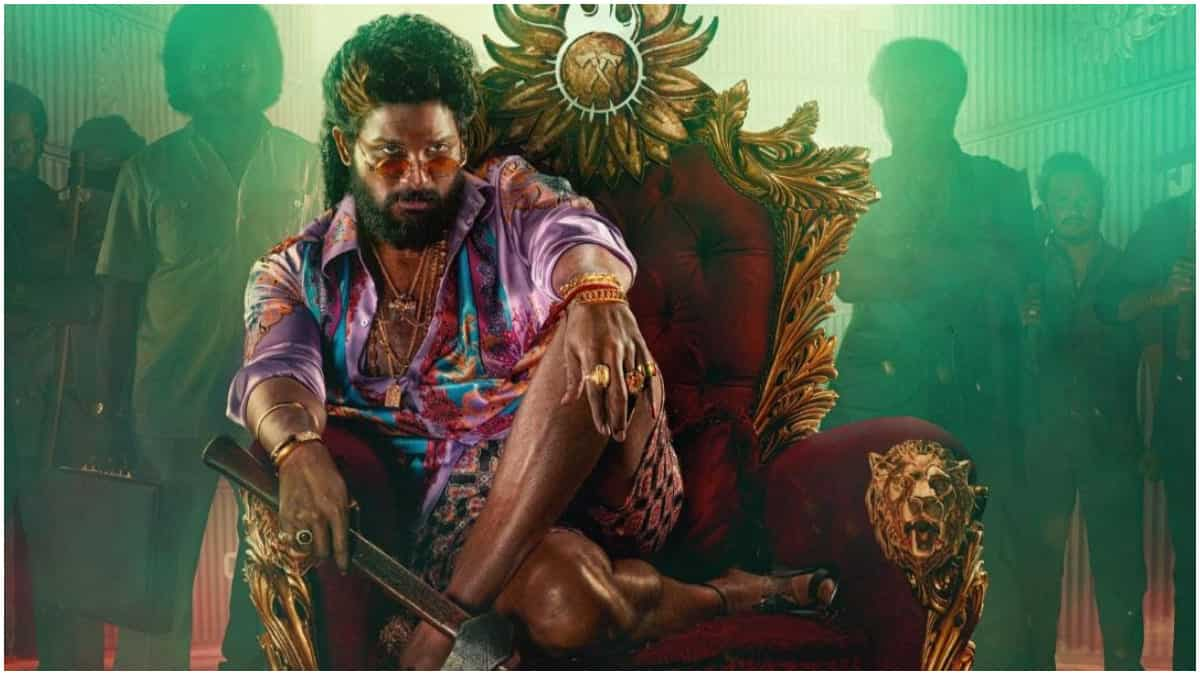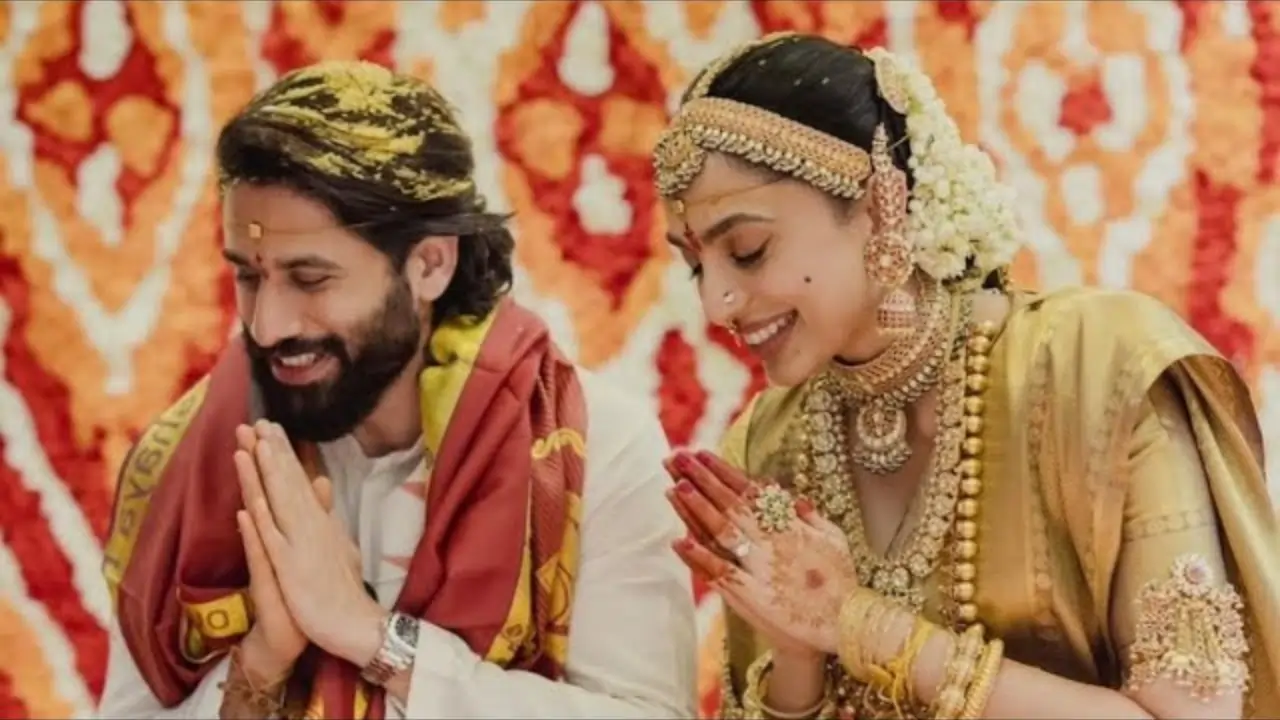
Salman Khan's ex Somy Ali reacts to Hema Committee report, talks about 'Bollywood's culture of hero worship and secrecy'
3 months ago | 37 Views
Amid the disturbing findings of the Hema Committee report, on the extent of sexual harassment in the Malayalam film industry, it's time for all other film industries to clean their own rot. In an exclusive interview, former Bollywood actor Somy Ali speaks to us about the troubles she faced during her acting stint in the 1990s, and starting No More Tears, a foundation to aid domestic abuse survivors.
Excerpts:
The recent Hema Committee report states that women lost out on work when they raised their voice against sexual harassment in the Malayalam film industry. Did you also encounter the same fate in the late 1990s, which compelled you to leave the country?
Thank you for the question. The findings of the Hema Committee report are both disheartening and, unfortunately, all too familiar to women in the entertainment industry, not just in Kerala but across the world. While my experience in Bollywood during the late 1990s was not exactly identical to the circumstances faced by the women in the Malayalam film industry, it was deeply shaped by a toxic environment that often silenced women or punished them for speaking out.
I personally encountered #MeToo incidents where I was warned that visiting a certain man’s suite was necessary if I wanted to advance in my career. I’ve also witnessed the heartbreaking 'walk of shame' — women, disheveled and distressed, leaving hotel suites early in the morning after being exploited by some of the biggest actors in Bollywood, including individuals publicly seen as committed family men.
While I fully support the rights of LGBTQ+ individuals in committed relationships, I’m also aware of the complex and troubling situations that exist behind closed doors. For instance, one of Bollywood’s biggest stars has been involved in a gender-confused relationship, where his gay lover fathered an aborted foetus with the star’s elder sister. These hidden realities further highlight the need for systemic change.
At that time, the industry offered little support to women who stood up against harassment or sought to assert their independence. The challenges I faced made it clear that my voice wasn’t valued as it should have been. This, combined with my growing passion for social justice and the desire to make a difference, led me to move to the United States and focus on my work with No More Tears.
My experience is just one of many, and the situation for women in the film industry — whether in Kerala or elsewhere — underscores the urgent need for systemic change. I sincerely hope the Hema Committee report serves as a wake-up call for the industry to protect and empower women and men, who are victimised, so that they can work without fear of retribution.
You recently reiterated that your former partner Salman Khan got the 2020 documentary featuring your domestic violence foundation banned in India. But he's also helped you out with your charity in the past. Why is there such inconsistency in his support to your work?
Salman and I share a complicated history, one that includes both moments of support and significant challenges. It's true that in the past, Salman contributed to my charity work, and I’m grateful for that. However, his support has not been consistent, particularly when it comes to the more difficult aspects of my work that shine a light on issues like domestic violence.
The 2020 documentary about No More Tears, at Discovery+ called Fight or Flight, was intended to raise awareness about the harsh realities faced by survivors of abuse, including my own experiences. Unfortunately, its ban in India was influenced by powerful individuals who may have felt uncomfortable with the truths it revealed. While I can't speak for Salman’s motivations, I believe that support should not be conditional or selective, especially when it comes to standing up against abuse and empowering survivors. At the end of the day, my focus remains on the work I do to help victims, regardless of who supports or opposes it. My mission is clear, and I will continue to fight for those who need a voice, even when it's challenging.
Kangana Ranaut recently claimed that she supported survivors in Bollywood during Me Too, but was left alone when they backed out under pressure. Have you been in the situation when you spoke out but other women, other ex-girlfriends did not?
I can understand where Kangana is coming from. Speaking out, especially in industries like Bollywood, comes with immense pressure, and not everyone has the support or courage to stay the course when the backlash hits. I’ve been in similar situations where I stood up against wrongdoings, but other women or ex-girlfriends chose not to join me in that fight. It’s disheartening, but I also understand the fear and the societal consequences that many women face when they choose to speak out.
That said, I’ve never let the absence of others’ support stop me from pursuing justice, whether it’s through my own experiences or the work I do with No More Tears. It’s not easy to be left standing alone, but I believe in my mission to fight for survivors of abuse. I’ve been fortunate to find allies along the way, and ultimately, I choose to focus on the voices I can amplify, rather than those who may have chosen silence.
Mohanlal, after resigning from AMMA, said that sexual harassment is much more rampant in other industries. What do you think is stopping skeletons from coming out of the closet in Bollywood?
Mohanlal’s observation about sexual harassment being pervasive across various industries is, unfortunately, very true. I see victims of sexual harassment in domestic violence and human trafficking daily, and the abusers are from all industries and demographics.
What we often see, though, is that some industries, like Bollywood, have deeply ingrained power structures that make it incredibly difficult for survivors to speak out. Fear of retaliation, loss of career opportunities, and social ostracization are powerful deterrents. Many people in the industry hold significant influence, and the pressure to remain silent is immense.
Additionally, Bollywood has a culture of hero worship and secrecy that can make it even harder for skeletons to come out of the closet. There’s a reluctance to challenge or expose those in powerful positions, especially when careers, reputations, and even personal safety are at stake.
That said, I believe the tide is slowly turning, thanks to movements like #MeToo. More people are finding the courage to speak up, but it’s going to take time and consistent effort to break down these barriers. It’s crucial that we continue to support survivors and create an environment where they can come forward without fear of retribution.
Have you personally encountered any incident in Bollywood where another woman has been punished for speaking out?
Divya Bharti’s tragic death remains one of Bollywood's most heartbreaking mysteries, but I want to share something deeply personal that she confided in me before her passing. Divya told me that she was under immense pressure due to certain troubling circumstances, including being subjected to sex trafficking impositions. She was deeply troubled and mentioned that there were plans for her to travel abroad, which she was extremely apprehensive about.
While there has been much speculation over the years, and I cannot speak to all the details, what she shared with me indicates that she was facing an incredibly difficult and distressing situation. Divya was a bright, talented young woman whose life was cut tragically short, and it's heartbreaking to think about the struggles she may have been enduring.
It's important to approach this with sensitivity and respect for her family and loved ones. Ultimately, we may never know the full truth, but I feel it’s important to honour her memory by acknowledging the challenges she faced and ensuring her legacy continues to inspire others.
You run a successful foundation that helps out women in abusive relationships. But how can we encourage efforts to help the men in these abusive relationships who are dishing out violence because they're sick themselves?
Thank you for highlighting this important aspect of the issue. At No More Tears, our foundation is dedicated to helping all victims of domestic violence and human trafficking, including men, women, children, LGBTQ+ members, and even pets, who are often overlooked but also suffer abuse. We believe it's essential to address the root causes of abusive behaviour in men as well. Many men who resort to violence are grappling with unresolved trauma, mental health challenges, or societal pressures, and it's vital to recognise that they too need support.
To effectively assist men who are either in abusive relationships or are themselves abusive, we must work to break down the stigma surrounding mental health and promote a culture where seeking help is encouraged. This involves raising awareness, making mental health resources more accessible, and fostering open conversations about emotions, vulnerability, and the harmful effects of toxic masculinity.
Moreover, intervention programs focused on rehabilitation, anger management, and counselling for men are crucial. By addressing the root causes rather than just the symptoms, these efforts can prevent future violence. We need a holistic approach to end the cycle of abuse, ensuring that both survivors and those who perpetrate violence receive the support they need to heal and change. Ultimately, our goal is to create a society where everyone, regardless of gender, can seek help and live free from the cycles of violence.
Read Also: When 21-year-old Aishwarya Rai blushed as she spoke about marriage, future husband: 'I want to experience motherhood' #












.webp)






